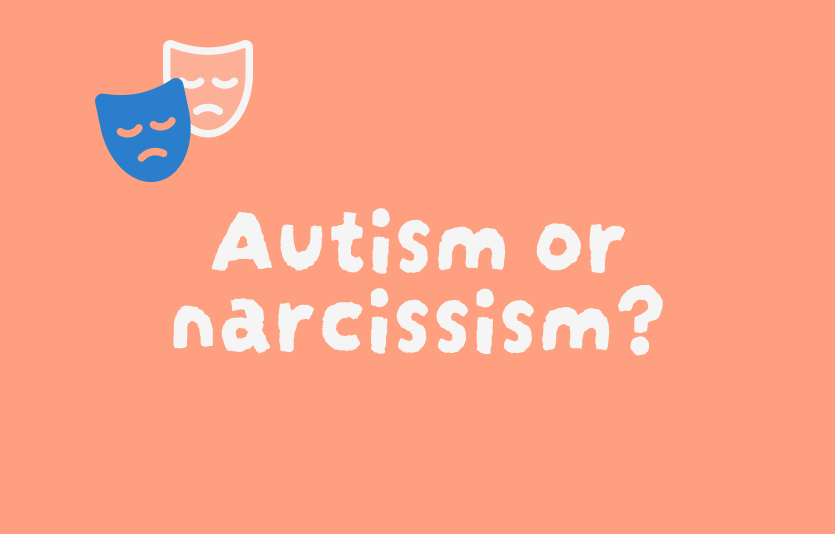The Dangerous Relationship Between Autism & Narcissism
Why it can be tricky to tell them apart 🎭
Hi friends,
Today, I want to talk about narcissism. I’ve always found this area fascinating, partly because I’ve been in a relationship with a narcissistic partner myself. Over time, I’ve encountered situations where people believed someone might be autistic, but it turned out they were either:
Both autistic and narcissistic, or
Simply narcissistic.
The Overlap Between Autism and Narcissism
The overlap between autism and narcissism can make distinguishing between the two particularly challenging. Both may share traits such as attachment difficulties, identity struggles, and unconventional expressions of empathy. Interestingly, research shows that people with autism are three times more likely to develop personality disorders, potentially due to childhood trauma.
Black-and-white thinking and heightened sensitivity to stimuli are traits that can occur in both autism and narcissism, often leading to confusion or misdiagnoses. In fact, one study found that narcissistic personality disorder (NPD) was relatively common among adults seeking help for suspected autism, who were later found not to be autistic.
Funnily enough, some researchers suggest that highly intelligent autistic individuals may overcompensate for their social insecurities, sometimes appearing arrogant or self-centered—traits that can be misinterpreted as narcissism.
Why Understanding The Difference Matters
Distinguishing between autism and narcissism is crucial, as their underlying motivations for behavior are entirely different.
In autism: Egocentric behaviors often stem from challenges with social cognition and an unawareness of social norms.
In narcissism: Egocentrism is often an automatic, yet calculated strategy, aimed at manipulating others to maintain or boost self-esteem.
Unfortunately, there are narcissists who claim their behavior stems from autism, which distorts public perception and damages the reputation of the autistic community.
The Takeaway
Understanding the differences between autism and narcissism ensures accurate diagnoses, fairer perceptions, and better support for those affected. The more we educate ourselves and others about these distinctions, the better we can promote genuine understanding and empathy for those navigating these challenges.
And remember, friends: if it looks like a duck and quacks like a duck, then it’s probably a duck. Don’t let anyone tell you otherwise. 🐥
Let me know your thoughts in the comments below. Have you come across this overlap in your own experiences?


